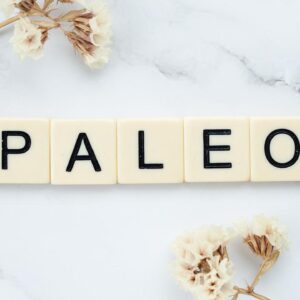What is The Difference Between Atkins and Low Carb Diet?
The Atkins Diet was designed to eliminate carbohydrates like sugar, bread and pasta. On the other hand, the low-carb diet cuts out or limits carbs but still includes foods like fruit and vegetables. Both diets can be effective in weight loss; however, there are certain risks associated with both diets.
Are Low Carb Diets Safe?
Many people have been following a low-carb diet, but are they healthy? According to many sources, including the Mayo Clinic and Harvard Medical School. Low-carb diets are safe to consume. However, there is an increasing number of studies showing that low-carb diets may be dangerous for one’s health.
The idea behind these diets are that by removing the high-carb foods, such as bread and pasta. You can reduce your blood sugar levels and lose weight. The body will then go into ketosis, where it breaks down fat instead of glucose for its energy source.
Low carb diets have been shown to be an effective approach for weight loss. However, there are some risks associated with this diet. The biggest issue is that low carb diets can lead to a loss of water weight. This can cause a person’s weight to fluctuate and can also affect their appearance. Another risk is that low carbs decrease the intake of fiber and other important nutrients.
How Safe is Atkins Diet?
It is very important to understand the risks of Atkins diet before you start. One of the main risks is how it can help lower cholesterol levels. Which can lead to a higher risk of heart disease. In addition, Atkins diet restricts carbohydrates and some studies show that low carb diets may increase triglycerides, which are fatty substances in the blood.
Triglyceride levels are a measure of the amount of fat in the blood. The higher the level, the more fat there is in the body. Healthy triglyceride levels range from 70 mg/dL to 139 mg/dL. Levels that are too high or too low can cause various health problems, such as heart disease and diabetes.
The Atkins Diet has been around for a few decades now and has been shown to improve weight loss by inducing ketosis.
Therefore, Atkins diet isn’t for everyone. If you’re insulin resistant, pregnant, breastfeeding, under 18 or over 60 years old then you should not do the diet. Moreover, you should avoid Atkins diet if you have a history of heart disease, high cholesterol, or high blood pressure.
Is These Diets Effective for Weight Loss?
It is common for people on low-carb diets to lose weight at the beginning because of glycogen depletion. The body stores glycogen in the liver and muscles for energy. However, when these are depleted, your body looks for alternate sources of fuel by breaking down fats.
While you are on weight loss, it is important to have a healthy body shape to go with it. Your muscles will decrease which can cause your bottom half to look disproportionate. That is why the gym is so important to maintain a healthy body shape.
Furthermore, loose skin is a common symptom of weight loss. For some people, their loose skin may be a good thing, but for others it can be a nightmare.
As more people are becoming aware of the environmental and health consequences of consuming unhealthy food, the food industry is coming up with new ways to attract consumers. We’ve seen artificially sweetened diet drinks, foods marketed as “sugar-free”, and other products that claim to be “healthy”. But how do we know what’s really healthy?
The diet industry has always been dominated by fads. However, with the rise of social media, people are eager to find healthier alternatives. Personal trainers and fitness experts are now using video channels on YouTube, Facebook, and Instagram to share their knowledge about health and wellness with anyone who wants to listen.
Is Low-Carb Diet Good For Muscle Building?
There are many reasons to believe that a low-carb diet is good for muscle building.
First of all, it has been shown that by cutting out carbohydrates, you can increase your fat burn rate without increasing your caloric intake. This means you will be able to lose weight while maintaining or building muscle mass. It has also been shown that reducing carbohydrate intake can lower cortisol levels in the body, which can encourage lean muscle tissue growth over fat loss.
Finally, by cutting out carbs, you drastically reduce your risk of injury from high intensity workouts because carbohydrates are responsible for fueling intense training sessions like Crossfit and High-Intensity Interval Training (HIIT).
In fact, low-carb diet are limits carbohydrate consumption to less than 50g/day. Proponents of low-carb diets claim it can have many health benefits, including weight loss, improved insulin sensitivity, and reduced risk of chronic disease.
Low-carb diets are not recommended for people who want to maintain or build muscle mass because they will lose muscle.
Maintaining muscle mass is important for people with healthy kidneys and a healthy heart because they may suffer from the consequences of losing this important organ when their muscles deteriorate.








